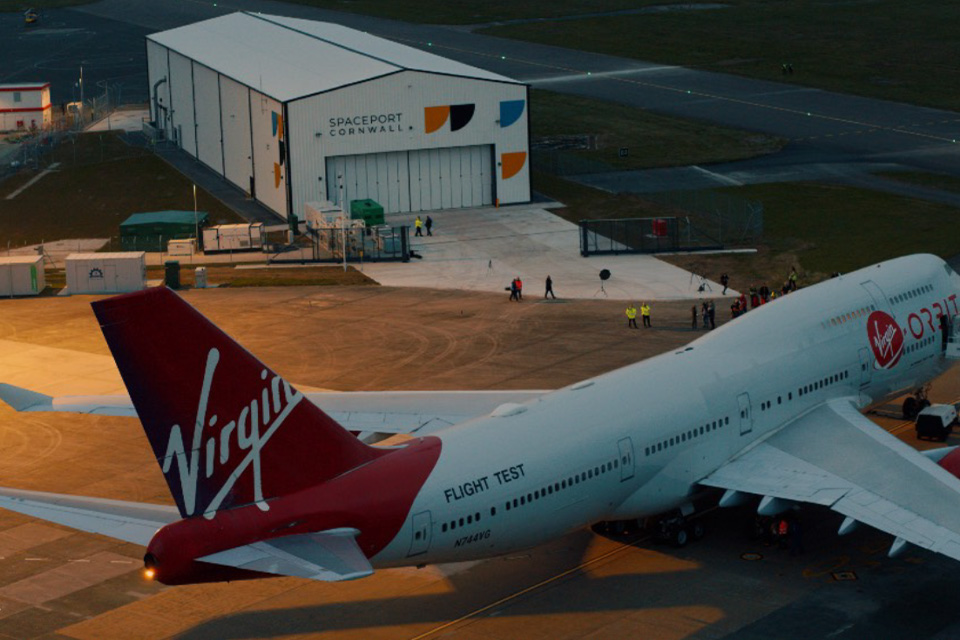UKSA Report Reveals Lessons Learned From Inaugural Launch
18th Dec 2023
The UK Space Agency (UKSA) has published their first ‘Pathfinder Launch Lessons Learned’ report almost a year after the UK’s first launch. Specifically, the report focuses on Virgin Orbit’s launch from Spaceport Cornwall which ended in catastrophe when the rocket experienced an in-flight malfunction. Due to the outcome of the launch, UKSA developed the report to identify key lessons that will aid future launches from under-construction spaceports such as SaxaVord and Sutherland.
UKSA said in a statement: “by listening to our fellow stakeholders and the wider space sector, and implementing the framework to act on these valuable inputs, the UK is in a stronger position than ever to achieve the ambitions of the National Space Strategy including progressing towards the pathfinder launches from SaxaVord and Sutherland in 2024.”
How The UK’s First Launch Engendered UKSA’s Report
Britain’s inaugural launch was from Spaceport Cornwall on 9th January, 2023, when Virgin Orbit’s Cosmic Girl took off from there and launched their LauncherOne rocket from over the Irish Sea. Significantly, it served as the first commercial pathfinder launch achieved by a European nation, UKSA said.
However, the launch itself was marred with controversy. Shortly after launching from Cosmic Girl, Virgin Orbit’s LauncherOne rocket experienced a second-stage anomaly failure. As a result, neither the rocket, nor its payload, reached orbit. Consequently, funding dissipated, causing Virgin Orbit to file for bankruptcy. They were later sold for parts to Rocket Lab.
Regardless of the final outcome for the rocket and its payloads, UKSA saw the mission as an accomplishment. UKSA cited that “this historic event demonstrated the UK’s ability to launch, safely, legally and with the appropriate coordination across government.” UKSA added: “it also marked significant progress towards the delivery of ambitions set out in the National Space Strategy.”
Why UKSA Sanctioned The Report
Upcoming launches are set to take place at Scotland’s Sutherland and SaxaVord, once both spaceports are operational. However, lessons from the UK’s first launch could heed warnings. Therefore, UKSA performed the: “exercise to identify areas for improvement that will support future launches from the UK.” To locate the lessons and formulate the recommendations, however, UKSA consulted with “government and industry” through workshop events. As a result, six lessons were unearthed and work is underway to address and implement the findings.
Findings & Recommendations
Based on what was discussed at the workshops, six themes and recommendations were developed, including:
Regulations
UKSA are recommending a more streamlined approach to licensing. They are proposing that space organisations assure the Civil Aviation Authority (CAA) that they have the capital and technology needed to fulfil launch requirements. In addition, UKSA are recommending that the information required for licensing is reduced to offset lengthy administration time and costs.
Sharing Knowledge
UKSA said transparency will help to speed-up the licensing process, and minimise setbacks. Therefore, UKSA argues that there should be: “clearer guidance on licensing processes and overall streamlining of the informational requirements.” They also suggest space organisations should have greater access to education on European airspace to overcome international flightpath obstacles.
International Agreements
Difficulties navigating European airspace and agreements with European nations was a topic of concern during the workshops. As a result, UKSA suggest governments should work collaboratively: “to simplify or manage airspace requirements better in a European context, [and] exploring a system of cross-European governance for launches from Europe through Eurocontrol.”
Insurance and Liability
During the workshops, operators said insurance and liability regulations can impede on mission development. As such, UKSA said the UK government should adopt a: “third-party liability insurance approach for satellite operations and should explore options to set an upper flat rate cap for launch operator insurance and liability.”
Communication and Escalation
To ameliorate communication and decision-making concerns, UKSA said: “governance processes should be reviewed to ensure there are clear communication, decision and escalation processes.” UKSA recommended that CAA should develop guidance on: “escalation protocols and ownership within operators, specifically with respect to how the risks to vessels in these areas are managed.”
Roles and Ownership
To augment accountability and outline distinct roles and responsibilities, UKSA said they will use the “responsibility assignment matrices”. Equally, they suggest organisations should hold frequent discussions for better dissemination of information. UKSA argues this lesson will enable adaptability to challenges involving maritime and international airspace. They added that criteria surrounding delivery of grant funding will yield lines of accountability for all aspects of the mission – including compliance.







Thank you for your comment! It will be visible on the site after moderation.